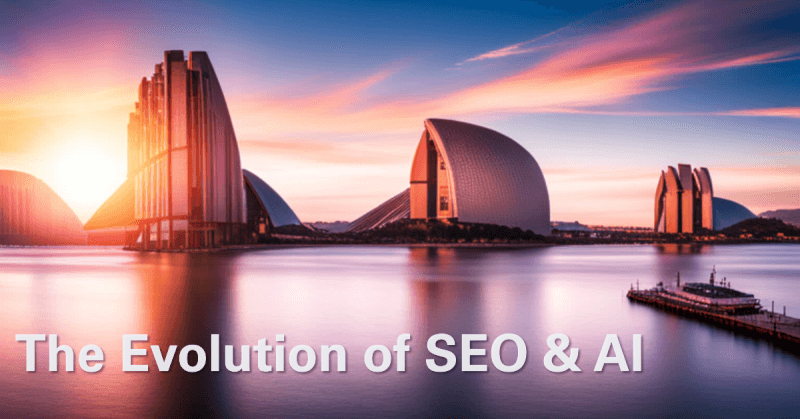As AI and automation continue to expand their influence on the web, it becomes increasingly crucial for SEO professionals to stay ahead of the curve. This article delves into the challenges and opportunities presented by AI-generated content, the growing importance of unique value and authority signals, and key strategies for optimizing websites in a bloated web landscape.
The Impact of AI and Automation on the Web
The Growing Importance of PageRank and Exogenous Factors
As AI-generated content floods the web, search engines like Google must differentiate between expert-like AI content and real expertise. Consequently, historical consistency, indexing, and relevance thresholds will become increasingly important. This means that PageRank and exogenous factors will play a more prominent role in determining a web source's authority.
AI and Automation Filters
To manage the influx of AI-generated content, Google will develop filters to identify and weed out non-expert websites. This may result in some mistakes, as Google struggles to distinguish between spam and legitimate AI-generated content.
Author Vectors and Author Recognition
Google will utilize Author Vectors and Author Recognition to differentiate between websites that use real experts for their content and those that don't. This is possible through the analysis of language styles and word sequences, often referred to as "watermarks."
Microsemantics: The Next Frontier
As the web becomes more bloated, micro-differences within content will become increasingly important in determining unique value. Microsemantics will thus play a vital role in SEO, with content networks focusing on semantic-based approaches to improve their expertise.
Adapting to the Changing Landscape
Advanced Semantic SEO Becomes a Necessity
In the face of increasing competition, advanced semantic SEO will become essential for maintaining high rankings. This will involve a thorough understanding of semantics, linguistics, and NLP (Natural Language Processing) principles.
The Convergence of NLP and SEO
As SEO becomes more expensive and complex, the NLP and SEO markets will increasingly intermingle, with NLP engineers working on SEO projects and SEO professionals utilizing NLP tools and techniques.
Brand SERP and Knowledge Panel Management
Brand SERP (Search Engine Results Page) and Knowledge Panel management will become default aspects of SEO, as they form the initial contact point with potential customers and help define your brand's authority and reputation.
The Importance of Visual Expression and YouTube Channels
Having a YouTube channel or utilizing visual content will become increasingly important for optimizing 2E-A-T (Expertise, Authoritativeness, and Trustworthiness) and Web Entity-based optimization.
The Rise of New Search Engines
With the advancement of NLP and algorithms, more search engines will emerge, making it crucial for businesses to optimize their content for multiple platforms.
Key Takeaways
- PageRank and exogenous factors will become more crucial due to the influx of AI-generated content.
- AI and automation filters will be developed to manage non-expert websites.
- Microsemantics will play a vital role in determining unique value in a bloated web landscape.
- Advanced semantic SEO and NLP principles will be essential for maintaining high rankings.
- Brand SERP and Knowledge Panel management will become default aspects of SEO.
- Utilizing visual content and YouTube channels will be important for optimizing 2E-A-T and Web Entity-based optimization.
- New search engines will emerge, requiring businesses to optimize their content for multiple platforms.
